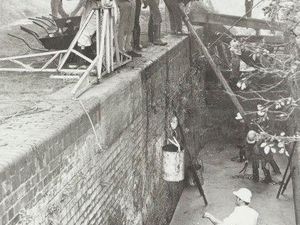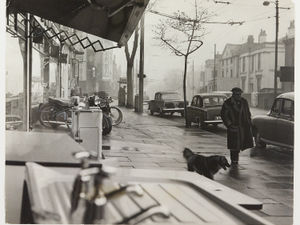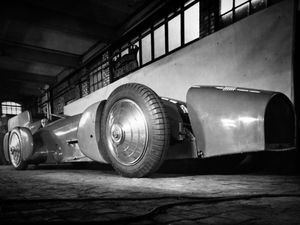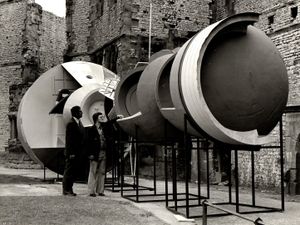Shifnal's landmark bridge spans generations
The span of time... a mighty railway bridge dominates the centre of Shifnal, as it has done for many generations.
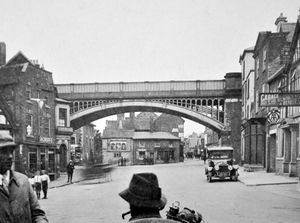
But it, like so much else in the ancient town, has changed, as our comparison pictures from just over 100 years apart show.
Originally it was an elegant arched Victorian structure. But they said it was getting on and that something stronger and more modern was needed, which is why in 1953 it was replaced by what you see today.
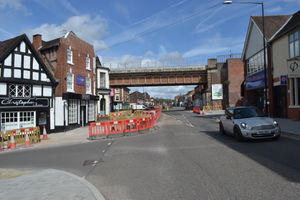
By that time the old cast iron bridge, built by the Horseley Bridge Company, was 105 years old. Its span of 90ft 2in was thought to be the widest between Chester and Wolverhampton.
The line it, and Shifnal's landmark viaduct, carried, had been laid down in the late 1840s.
The new bridge, with main members of tensile steel, was the work of the rather similar-sounding Horsehay Company.
Work on dismantling the original bridge did not go as planned. Far from being weak, it was a tough old nut and well put together. Dovetail joints meant the cast iron could not simply be lifted out, so oxy-acetylene cutters had to be used, but they turned out not to be powerful enough and special cutters had to be brought in.
And while it had been hoped that the bridge could be demolished in a day – a Sunday – in the event it took much longer than expected.
Trains were diverted to Stafford in the meantime.
Our fascinating old picture comes from Bridgnorth postcard collector Ray Farlow and the only information with it is a pencil note on the back reading: "Taken by Geo L Hill, Shifnal." Although it is undated, there are clues which help narrow it down.
The car on the right – can any car buff identify what it is? – has a rounded radiator which according to an early cars book were fashionable from 1905 to 1910.
But it seems that by the time of the picture this motor was already an old banger, as a poster in the distance just left of centre features Mollie King, who was an actress in films from 1916 to 1924.
It can just about be read to read "The Mystery of the Double Cross" which was a 1917 film, so clearly the picture cannot be earlier than that and, on the assumption that posters advertising movies would be changed regularly, would suggest the picture dates from 1917 or 1918, so around the end of the Great War.
Obviously there was not as much traffic going through Shifnal back then, and the people in the foreground seem to be chatting to somebody sitting low down in a car, perhaps a three-wheeler.
On the right is a hanging sign for the "Star and Eight Bells Hotel," and also an AA sign, and a hanging sign for a garage, the proprietor seeming to have the name Rich. The Star must be off the picture to the right as it had been gutted in a fire in March 1911 so was probably a ruin at the time.
Today the Odfellows wine bar stands on the site.
Modern Bradford Street – seen under the arch – is these days a wide parade, but that is the result of demolitions in the past which opened it up.
Shifnal saw a significant amount of demolition in the mid-1960s although a different picture in our files suggests that the buildings seen through the arch were knocked down in the summer of 1970.
Shifnal continues to evolve, with large numbers of new houses being built in the town in recent years. Our modern picture was taken on Easter Monday, and the work being done on the left (or which would be proceeding were it not a public holiday) is the laying of attractive new paving.

